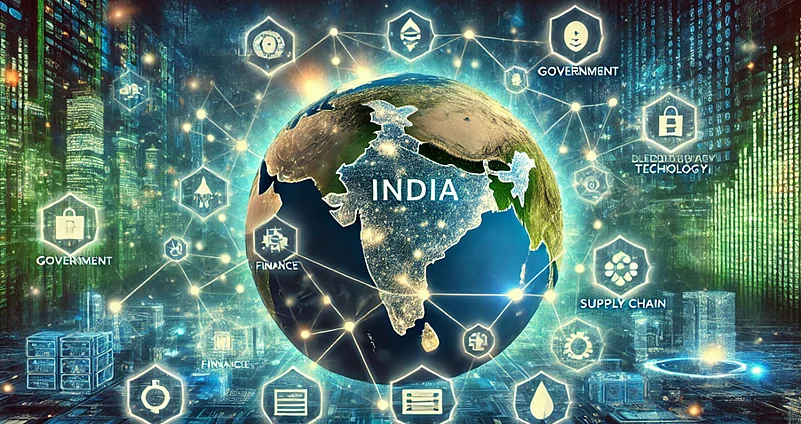Blockchain technology is commonly associated with cryptocurrencies, but its use of blockchain is much broader than digital currencies. In India, where the digital economy is expanding at a fast pace, Distributed Ledger Technology (DLT) is proving to be a game-changer across many sectors. From making government operations more effective to enhancing financial inclusion, blockchain will transform the way data is stored, data is shared, and data is secured. As India moves towards a digitally empowered country, it is important to be aware of the role of blockchain as well as cryptocurrencies.
The Pillars of Blockchain Technology
Blockchain is literally a decentralized, unalterable record book, where a transaction history is built in multiple nodes. In contrast to traditional centralized databases where a single entity owns information, blockchain provides transparency, security, and inalterability. Being of such basic nature, it is best suited for applications that deal with trust and data consistency.
Reforming Governance and Public Services
The most likely application of blockchain in India is governmental. The government has been investigating the application of DLT for greater transparency and efficiency across multiple departments. Blockchain land registries, for instance, can reduce fraud and error in land records using an immutable digital ledger. Similarly, e-governance applications can use blockchain to secure citizen information, remove bureaucratic delay, and prevent document forgery.
Aside from that, voting systems can be secured using the implementation of blockchain to facilitate transparent and credible elections. Through the ability of voters to verify their votes on an immutable ledger, electoral fraud issues could be greatly mitigated.
Revolutionizing Financial Inclusion
Even with a lot of development in internet banking, India remains with a majority that is unbanked and underbanked. Blockchain technology can change the scenario of financial inclusion by making peer-to-peer payments faster and more secure without involving any intermediary. Self-executing contracts with programmed conditions can be used in instant cross-border payments, microfinance schemes, and government subsidy payouts in an inexpensive way.
Decentralized finance (DeFi) blockchain websites are also generating new possibilities for rural communities and small businesspeople by providing credit and investment without banks.
Enhancing Supply Chain Management
India's supply chain network is vast and complex and is vulnerable to being beset by inefficiency, counterfeiting, and weak real-time tracking. The transparency and traceability of blockchain can reverse these issues by providing an unchangeable, real-time record of products at each point in the supply chain.
For instance, in agriculture, blockchain will ensure that farmers receive a genuine record of what they are harvesting so that they can receive good prices and not be deceived. In the pharmaceutical industry too, blockchain will ensure that counterfeit drugs are not sold in the market because customers will be able to trace the genuineness of a product.
In an era of escalating cyberattacks and data breaches, blockchain provides a secure means of protecting confidential information using its decentralized system. Eliminating the centralized failure points, blockchain reduces hacking and improper data tampering.
For example, blockchain-based digital identity management systems can allow people to own their data but open it up only to legitimate parties. It could not be more important for India, where online identity is not only part of financial inclusion but also a key component of social welfare.
The Road Ahead: Challenges and Opportunities
Though adoption of blockchain holds enormous potential, there are certain deterrents. Absence of regulatory clarity of high order, astronomical levels of implementation costs, and absence of consumer and corporate awareness are the deterrents to its large-scale adoption. On the government's part, trade associations and research investment will empower India to realize the true potential of Distributed Ledger Technology (DLT).
As the country continues to advance with digitization, blockchain will be among the key drivers towards an open, secure, and productive digital economy. DLT, apart from cryptocurrencies, will revolutionize finance, governance, supply chains, and cybersecurity and hence become future-proof technology.
Conclusion
Blockchain's impact in India extends far beyond the periphery of cryptocurrency. Blockchain as a trust enabler, velocity enabler, and transparency enabler has the potential to revolutionize foundational sectors and empower crores. India's journey towards a blockchain future can be challenging, but with proper policies and innovation, India can take the lead in releasing the promise of this game-changing technology. The only question is, will blockchain reimagine India's digital economy—when it is already at the doorstep?














